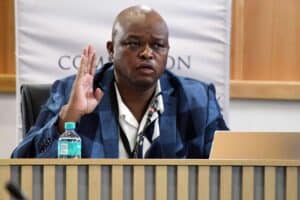At a presentation on Wednesday on the investment protections needed to secure SA’s future in a post-Covid world, Herbert Smith Freehills partner Peter Leon offered some advice on how to start fixing things. It was, says Leon, a “lost decade” for SA after Zuma came to power, but this need not be the story of the next decade.
SA is approaching the International Monetary Fund (IMF) for $4.2 billion (R69.5 billion) in short-term lending under its Rapid Financing Instrument.
This must be paid off in three to five years, but chances are we will have to approach the IMF for a much larger longer-term loan of about $18 billion (R298 billion) to truly get the economy back on its feet and to get the fiscus in some kind of respectable shape.
Big stick
The IMF’s shorter-term lending is relatively mild on conditionalities, but the longer-term loan is the one that carries the big stick.
The IMF’s Article IV report on SA, published in January this year, suggests that SA would be required to implement major microeconomic reforms, especially for state-owned enterprises (SOEs) as well as product and labour markets.
This is where it could get sticky with the labour unions, but government will be forced to take these steps and face down opposition in the ruling party.
Per the IMF script, if the economy is to grow, SOEs will have to be split up, privatised, or weaned off the state teat. The public sector wage bill will have to be shrunk. Labour legislation – and this is the tough one – may have to be revisited, particularly the extension of so-called bargaining council agreements that set wage and working conditions for all businesses in a sector, including those that are consulted on these agreements. Issues such as these are cited as reasons for SA’s low-growth trap, and the IMF will want its pound of flesh.
Life under the IMF
The IMF sees decent upside for SA under a structural adjustment programme: increased per capita income, improved business environment, lower unemployment and poverty, reducing public debt from 2022, lower inflation in the medium term with a stronger rand to offset imported inflation. With that done, there should be greater room for easing monetary policy and reducing finance costs.
Leon says the way things are headed, he doesn’t see how government will be able to not go to the IMF for a longer-term facility.
FDI flows into SA were not helped by the Department of Trade and Industry (DTI) decision to unilaterally terminate bilateral investment treaties (BITs) with our trading partners.
These treaties provided strong protections against discrimination against foreign investors; ensured them full protection against crime, civil strife and expropriation; allowed them unrestricted repatriation of funds; and gave them recourse to international arbitration in the event of disputes. These protections were reinforced when SA signed on to the Southern African Development Community (SADC) Protocol on Finance and Investment, which came into effect in 2010.
The rights of foreign investors were weakened by the termination of the BITs under then DTI minister Rob Davies, and then again by a 2016 amendment of the SADC Protocol that diluted protections against expropriation, non-discrimination and repatriation of investment returns.
SA’s own ‘structural adjustment’ plans
SA has tried to avoid its day of reckoning with the IMF for a long time, starting with the so-called Growth, Employment and Redistribution (Gear) policy in 1996, and followed up with the Accelerated and Shared Growth Initiative for SA (Asgisa) in 2014 – both of which were forms of home-grown structural adjustment programmes.
There was no real will to push through on these plans, which contributed to the ‘lost decade’, until Finance Minister Tito Mboweni unveiled his growth plan in August 2019. Titled Economic Transformation, Inclusive Growth and Competitiveness: Towards an Economic Strategy for South Africa, it proposed relaxing labour and other regulations on small businesses, and opening the rail and energy sectors to greater private participation.
“If SA is to emerge from the economic devastation of the Covid-19 pandemic, it will need more than investment-friendly rhetoric from the president and his envoys,” says Leon.
He adds that even beyond implementing the structural reforms proposed by the IMF, SA will need to show a concrete commitment to the protection of foreign investors, by doing the following:
- Amending the Protection of Investment Act to provide for proper investment protection;
- If not joining the International Centre for Settlement of Investment Disputes by signing the Washington Convention, then entering into new BITs with important trading partners, especially in the EU, or with the EU as a bloc; and
- Submitting itself to investor-state international arbitration.
The African Continental Free Trade Area (AfCFTA) kicked off last year, initially to liberalise trade in goods and services, and then to tackle the thornier issues of intellectual property rights, investment and competition policy.
This new trade area agreement provides SA with a unique opportunity to develop an Afro-centric model based on best practices, including a single continental rule book for trade and investment, and strong protections for investors while still promoting responsible investment. And, of course, a more suitable channel for dispute resolutions.









